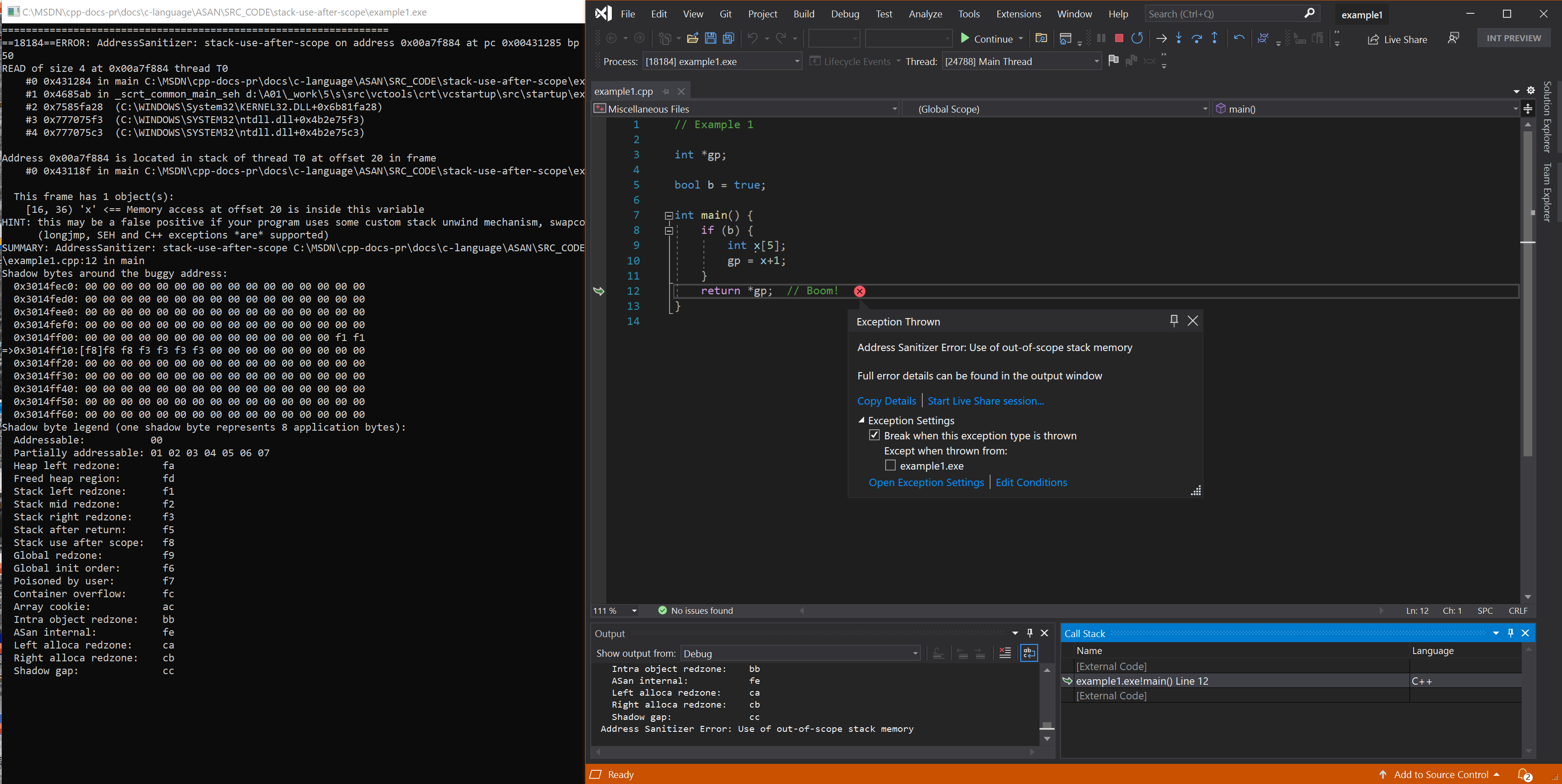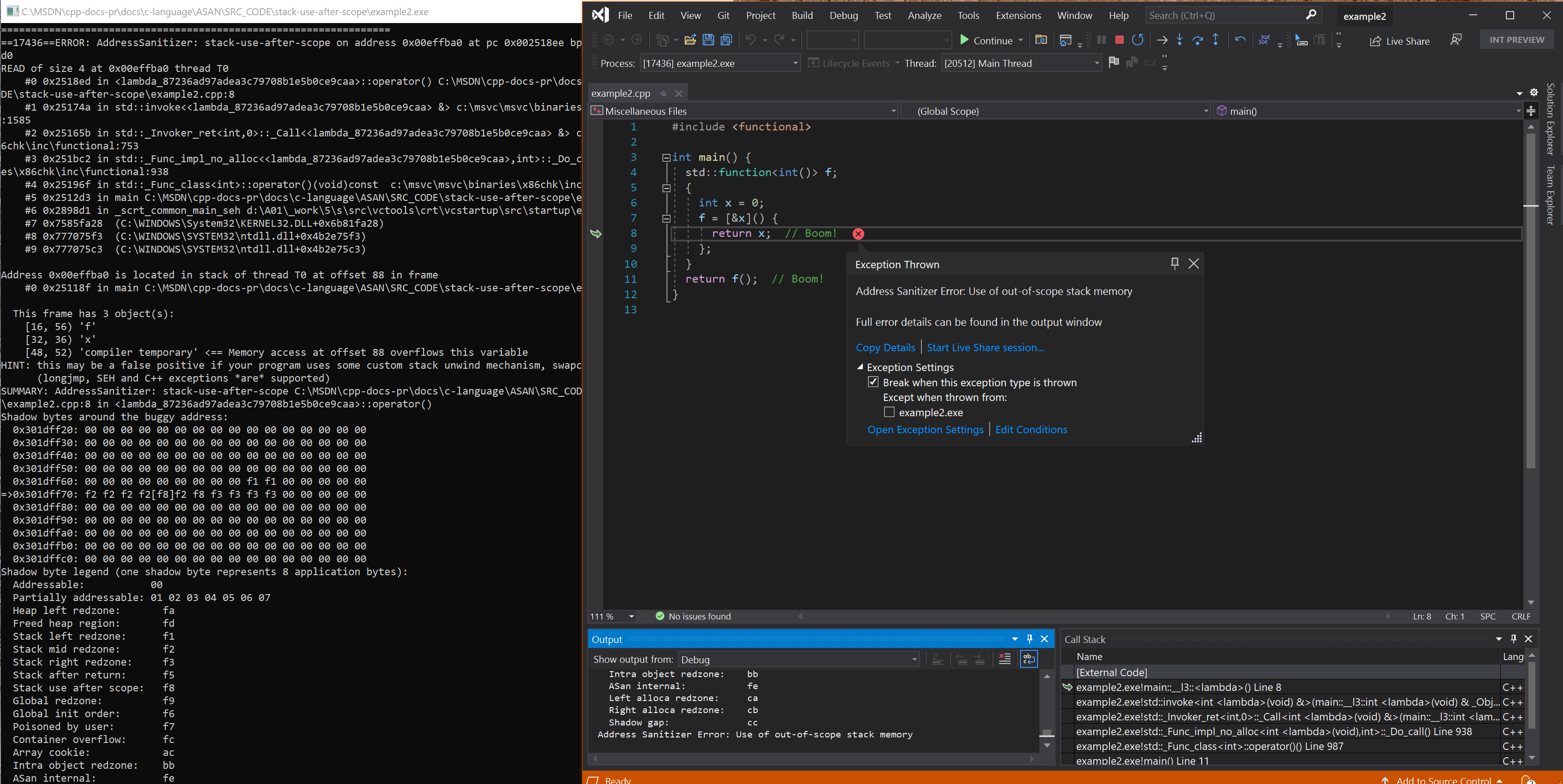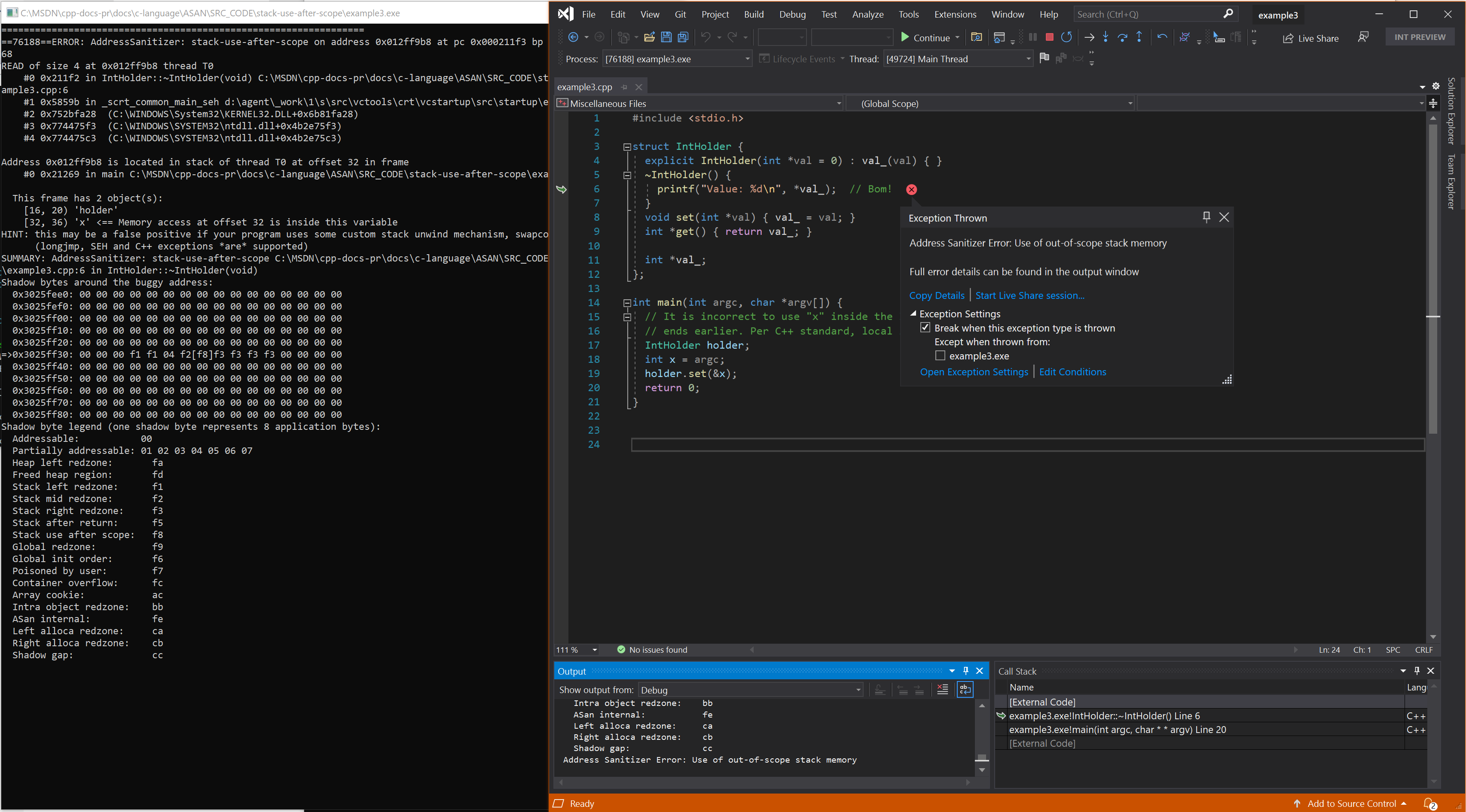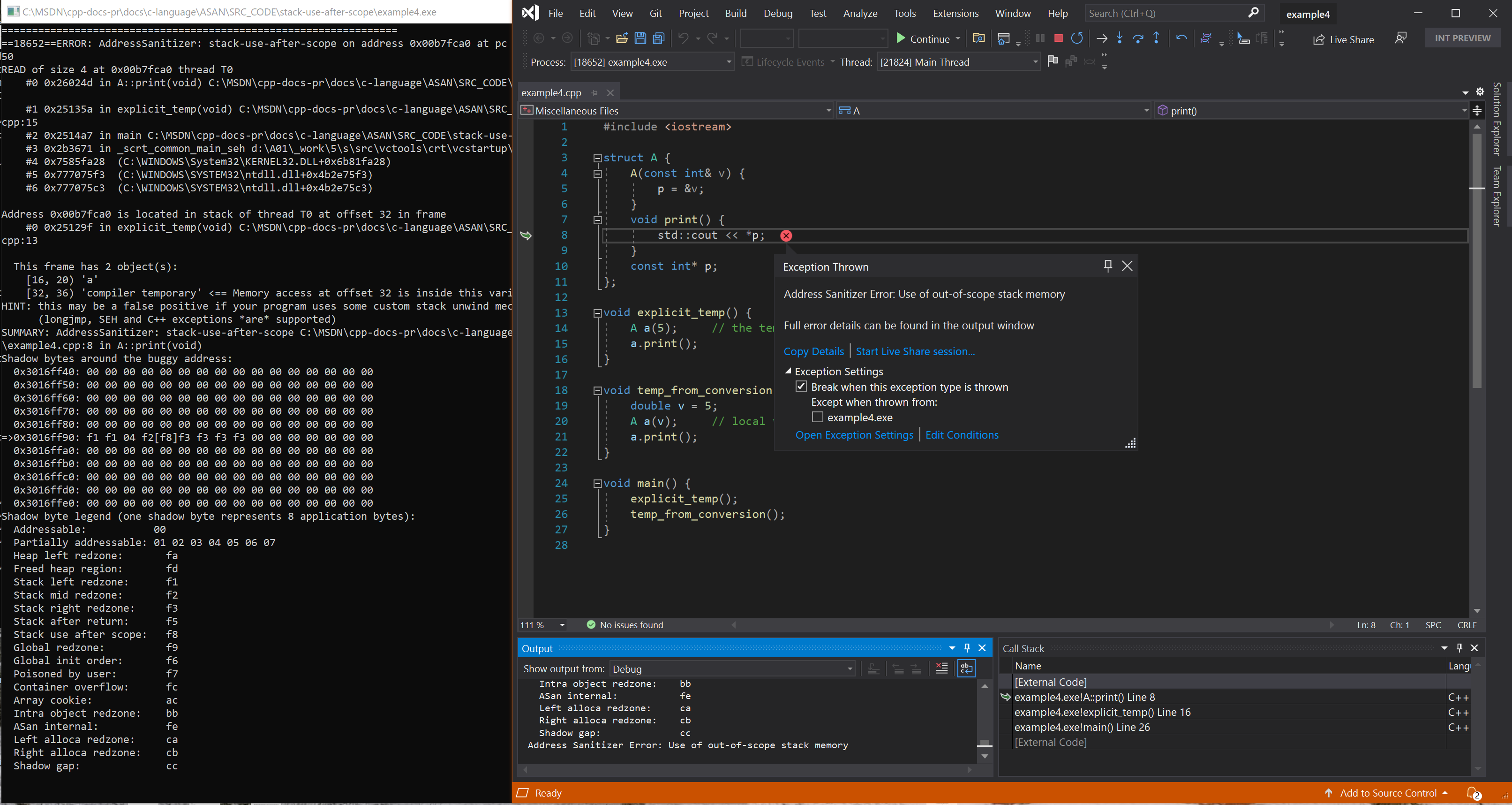错误:stack-use-after-scope
地址擦除器错误:使用超出范围的堆栈内存
在变量生存期的词法范围之外使用堆栈地址可以在 C 或 C++ 中以多种方式发生。
示例 1 - 简单嵌套本地
// example1.cpp
// stack-use-after-scope error
int *gp;
bool b = true;
int main() {
if (b) {
int x[5];
gp = x+1;
}
return *gp; // Boom!
}
若要生成并测试此示例,请在 Visual Studio 2019 版本 16.9 或更高版本的开发人员命令提示符中运行以下命令:
cl example1.cpp /fsanitize=address /Zi
devenv /debugexe example1.exe
生成的错误 - 简单嵌套本地

示例 2 - lambda 捕获
// example2.cpp
// stack-use-after-scope error
#include <functional>
int main() {
std::function<int()> f;
{
int x = 0;
f = [&x]() {
return x; // Boom!
};
}
return f(); // Boom!
}
若要生成并测试此示例,请在 Visual Studio 2019 版本 16.9 或更高版本的开发人员命令提示符中运行以下命令:
cl example2.cpp /fsanitize=address /Zi
devenv /debugexe example2.exe
生成的错误 - lambda 捕获

示例 3 - 使用局部变量进行析构函数排序
// example3.cpp
// stack-use-after-scope error
#include <stdio.h>
struct IntHolder {
explicit IntHolder(int* val = 0) : val_(val) { }
~IntHolder() {
printf("Value: %d\n", *val_); // Bom!
}
void set(int* val) { val_ = val; }
int* get() { return val_; }
int* val_;
};
int main(int argc, char* argv[]) {
// It's incorrect to use "x" inside the IntHolder destructor,
// because the lifetime of "x" ends earlier. Per the C++ standard,
// local lifetimes end in reverse order of declaration.
IntHolder holder;
int x = argc;
holder.set(&x);
return 0;
}
若要生成并测试此示例,请在 Visual Studio 2019 版本 16.9 或更高版本的开发人员命令提示符中运行以下命令:
cl example3.cpp /fsanitize=address /Zi /O1
devenv /debugexe example3.exe
生成的错误 - 析构函数排序

示例 4 - 临时变量
// example4.cpp
// stack-use-after-scope error
#include <iostream>
struct A {
A(const int& v) {
p = &v;
}
void print() {
std::cout << *p;
}
const int* p;
};
void explicit_temp() {
A a(5); // the temp for 5 is no longer live;
a.print();
}
void temp_from_conversion() {
double v = 5;
A a(v); // local v is no longer live.
a.print();
}
void main() {
explicit_temp();
temp_from_conversion();
}
若要生成并测试此示例,请在 Visual Studio 2019 版本 16.9 或更高版本的开发人员命令提示符中运行以下命令:
cl example4.cpp /EHsc /fsanitize=address /Zi /Od
devenv /debugexe example4.exe
ASAN 是动态分析的一种形式,这意味着它只能检测实际执行的错误代码。 在这些情况下,优化器可能会传播 v 的值,而不是从 p 中存储的地址读取。 因此,此示例需要 /Od 标志。
生成的错误 - 临时变量

另请参阅
AddressSanitizer 概述
AddressSanitizer 已知问题
AddressSanitizer 生成和语言参考
AddressSanitizer 运行时参考
AddressSanitizer 阴影字节
AddressSanitizer 云或分布式测试
AddressSanitizer 调试程序集成
AddressSanitizer 错误示例